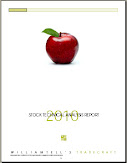Dollar should be replaced as international standard, U.N. report saysSTORY HIGHLIGHTS
RELATED TOPICS The use of the dollar for international trade came under increasing scrutiny when the U.S. economy fell into recession. "The dollar has proved not to be a stable store of value, which is a requisite for a stable reserve currency," the report said. Many countries, in Asia in particular, have been building up massive dollar reserves. As a result, those countries' currencies have become undervalued, decreasing their ability to import goods from abroad. The World Economic and Social Survey 2010 is supporting a proposal long advocated by the International Monetary Fund to create a standardized international system for liquidity transfer. Under this proposed system, countries would no longer have to buy up foreign currencies, as China has long done with the U.S. dollar. Rather, they would accumulate the right to claim foreign currencies, or special drawing rights, or SDRs, rather than the currencies themselves. The special drawing rights would be backed by a basket of currencies, which would make them less susceptible to volatility in any one currency. And because the value of a special drawing right is defined by the IMF, changes in the value of any one currency could be adjusted for. These initiatives, supported by U.N. Secretary-general Ban Ki-moon, are meant to help sustain the international trade and financial systems that will allow less-developed countries to participate and integrate into the global economy. In addition to the proposed reforms regarding international currency, the survey also offered guidance on increasing social well-being. The survey said that "the number of the poor in the world living on less than $1.25 a day decreased from 1.8 billion in 1990 to 1.4 billion in 2005, but nearly all of this reduction was concentrated in China." The number of poor increased in sub-Saharan Africa and South Asia over the same period. Income inequalities within countries have increased since the early 1980s with few exceptions, the report said. "There's too little aid being provided, it's too fragmented, and it's too volatile in terms of the resources that are flowing to countries," said Rob Vos, director of the development policy and analysis division of the U.N. The survey projects that by 2050 the population will be at 9 billion, with 85 percent living in developing countries, and the global economy will have to sustain a system that will allow for "decent living." By 2050, one of every four people living in a developed country and one in every seven in countries now being developed will be over age 65. The fast ageing of the population will call for proper pension and health care systems that are sustainable. |
From Ford to Boeing: The Companies That Armed the Allies in WW2
-
In the wake of World War 2, the United States emerged as an industrial
powerhouse after supplying its own military and its allies with a wide
array of we...
17 minutes ago





















